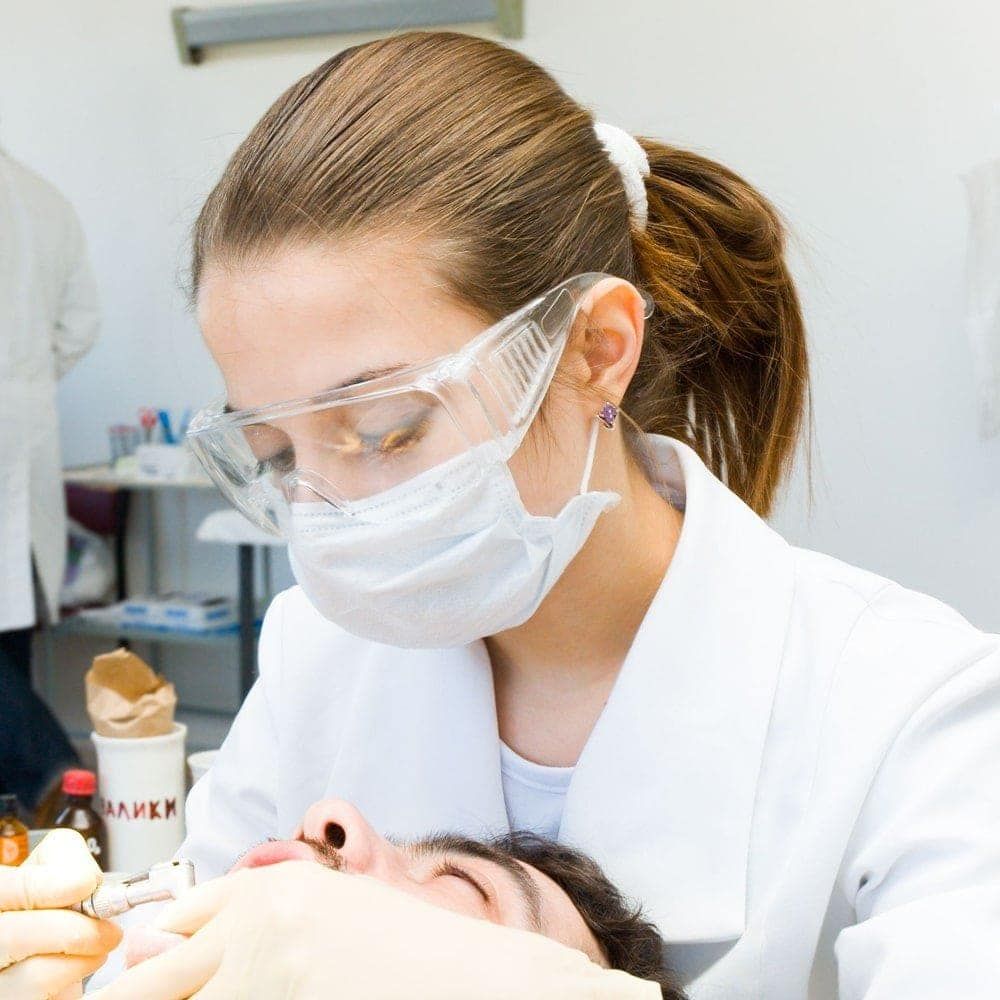What to Expect During a Initial Consultation
BIO Smiles, Dr. Samuel Petersen | Eagle, ID
When you schedule an initial consultation with a dentist, it's normal to feel a mix of anticipation and anxiety. Understanding what to expect can help ease your nerves and make the experience more pleasant. This guide will walk you through each step of the process, from the moment you arrive at the dental office to the conclusion of your visit.
Arrival and Check-In
Greeting and Paperwork
Upon arrival, you'll be greeted by the friendly staff at the reception desk. You'll be asked to fill out some essential paperwork, including your medical history, dental history, and insurance information. This information is crucial for the dentist to understand your overall health and any specific concerns you might have.
The Initial Examination
Meeting Your Dentist
After completing the paperwork, you'll be introduced to your dentist. This is a great opportunity to discuss any dental concerns or goals you have, whether it's alleviating pain, improving aesthetics, or maintaining oral health. The dentist will listen carefully to your concerns and explain what to expect during the examination.
Comprehensive Oral Examination
The dentist will then conduct a thorough oral examination. This typically includes:
- Visual Inspection: The dentist will visually inspect your mouth, teeth, gums, and throat to identify any visible signs of issues such as cavities, gum disease, or oral cancer.
- Palpation: The dentist might gently feel areas around your jaw and neck to check for any abnormalities.
- Periodontal Examination: Special attention will be given to your gums. The dentist will measure the depth of the pockets around your teeth to assess the health of your gums and check for signs of periodontal disease.
Diagnostic Tools and Procedures
Dental X-Rays
To get a complete picture of your oral health, the dentist will likely recommend dental X-rays. These images help in detecting issues that are not visible to the naked eye, such as impacted teeth, bone loss, abscesses, cysts, or tumors. Modern dental offices often use digital X-rays, which reduce radiation exposure and provide clearer images.
Intraoral Cameras
Some dental offices use intraoral cameras, small handheld devices that capture detailed images of the inside of your mouth. These images can be displayed on a monitor, allowing you to see what the dentist sees. This can be particularly helpful in understanding your dental condition and the recommended treatments.
Discussion of Findings
Review of X-Rays and Images
Once the examination and diagnostic procedures are complete, the dentist will review the findings with you. This review might include a discussion of the X-rays and intraoral images, highlighting any areas of concern.
Personalized Treatment Plan
Based on the findings, the dentist will develop a personalized treatment plan tailored to your specific needs. This plan may include preventive measures, such as professional cleanings and fluoride treatments, as well as restorative procedures like fillings, crowns, or root canals. The dentist will explain the recommended treatments, the expected outcomes, and any alternative options available.
Preventive Care and Education
Oral Hygiene Instructions
A significant part of the initial consultation is education. The dentist or dental hygienist will provide instructions on proper oral hygiene techniques, including brushing, flossing, and the use of mouthwash. They may demonstrate these techniques and offer tips on how to improve your oral care routine.
Dietary Advice
Diet plays a crucial role in oral health. The dentist may provide dietary advice to help you reduce your risk of cavities and gum disease. This could include tips on limiting sugary snacks and beverages, increasing your intake of fruits and vegetables, and staying hydrated.
Addressing Your Concerns
Pain Management
If you're experiencing pain or discomfort, the dentist will address these issues promptly. They will discuss pain management options, both for immediate relief and for any future dental procedures. This might include local anesthesia, sedation options, or over-the-counter pain relievers.
Cosmetic Concerns
If you have cosmetic concerns, such as stained or misaligned teeth, this is the time to discuss them. The dentist can explain the various cosmetic procedures available, such as teeth whitening, veneers, or orthodontic treatments, and help you decide which option is best for you.
Financial Considerations
Understanding Costs
Understanding the costs associated with your treatment plan is crucial. The dental office will provide a detailed estimate of the costs involved, including what is covered by your insurance and any out-of-pocket expenses. If you have any questions or concerns about the costs, don't hesitate to ask for clarification.
Payment Plans and Financing Options
Many dental offices offer payment plans or financing options to help manage the costs of dental care. These options can make it easier to afford the treatments you need. The staff will explain the available options and assist you in choosing a plan that fits your budget.
Setting Future Appointments
Scheduling Follow-Up Visits
Once your initial consultation is complete, the next step is to schedule any necessary follow-up visits. This might include appointments for cleanings, fillings, or other treatments outlined in your personalized treatment plan. Regular follow-up visits are essential for maintaining your oral health and addressing any new issues that may arise.
Routine Check-Ups
Your dentist will recommend a schedule for routine check-ups, typically every six months. These check-ups are vital for preventing dental problems and ensuring that your treatment plan is on track. During these visits, the dentist will monitor your progress and make any necessary adjustments to your care.
Conclusion
An initial consultation is a comprehensive assessment designed to evaluate your oral health and develop a personalized treatment plan. By understanding what to expect, you can approach your consultation with confidence and take an active role in your dental care. Remember, regular dental visits are key to maintaining a healthy smile and preventing future dental issues. If you have any questions or concerns, don’t hesitate to ask your dental team—they are there to help you every step of the way.
At BIO Smiles, we are committed to providing exceptional dental care tailored to your individual needs. We look forward to welcoming you and helping you achieve and maintain a healthy, beautiful smile.
E State St, Eagle, ID 83616














